Part II: The year in review at AU
A lot can be said about the the second half of 2017 at AU. However, 'boring' or 'dull' is not a suitable description.
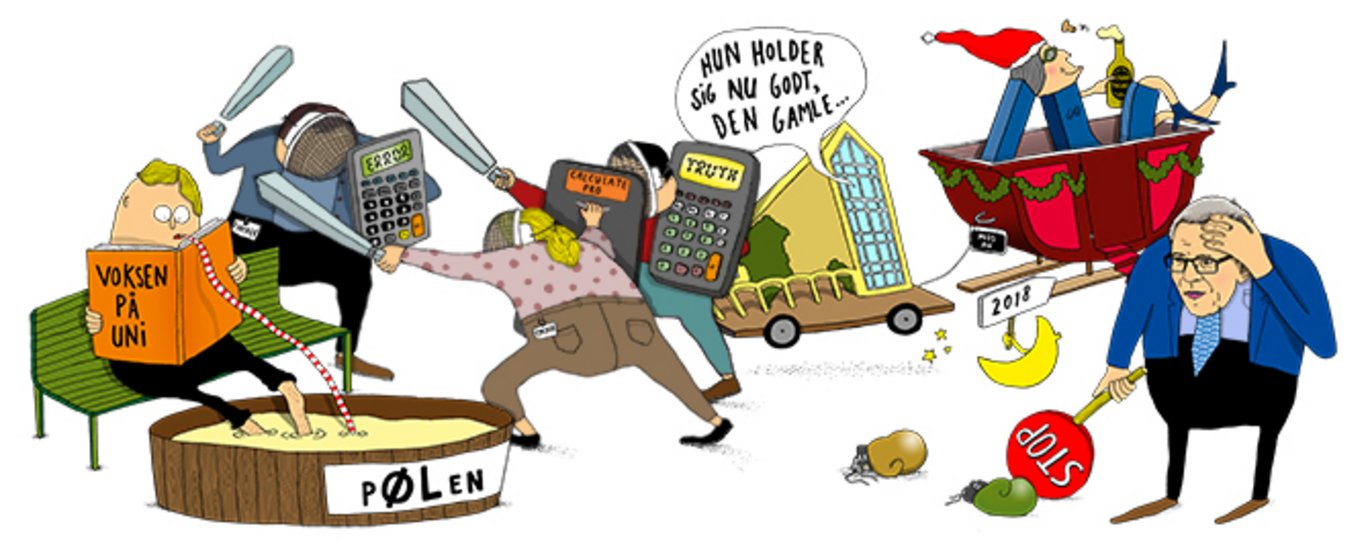
READ MORE: Part I: Årets gang på AU 2017
After a summer with the least sunshine since the turn of the millennium, employees and students returned for the autumn semester at AU. A further 7,300 new students also started at the campuses in Aarhus, Herning and Emdrup. If they weren’t pale after the rainy summer (also the eleventh wettest since measurements began in Denmark in 1874), they could quickly become so by thinking about what awaited them as they began their studies.

Book title: Being a grown up at the university. "Are you new here too?" Illustration: Louise Thrane Jensen
Medicine, law and psychology
Before we move on from the new students, we should say that among those who applied to AU, the most popular fields of study were medicine, law and psychology. But it was actually a degree programme outside the top 10 that this year required the highest average mark of all here at the university. That was the cognitive science degree programme, which this year required an average mark of 11.7 for admission. Incidentally, for the second year running, AU was the university that welcomed the greatest number of new students among the universities in Denmark.
AU Library merged with The Royal Library
But there were also those who left AU – in organisation if not physically. Not because they wanted to judging by the protests by the librarians and also by the users from several faculties, as the senior management team proposed a merger between AU Library and The Royal library. The board agreed with the proposal and 85 library staff and library functions were therefore transferred to The Royal Library.
For ever – or at least for forty years
There are also those who seem to have been around for ever. Joint union representative for the technical/administrative staff members, Aase Pedersen, could celebrate a fortieth anniversary at AU in mid-August.
"I come from a typical working-class home and I could see how the trade union movement helped people like me from homes where our parents weren’t well-educated and who were finding things difficult," said Aase Pedersen in an interview for Omnibus in connection with the anniversary celebrations.
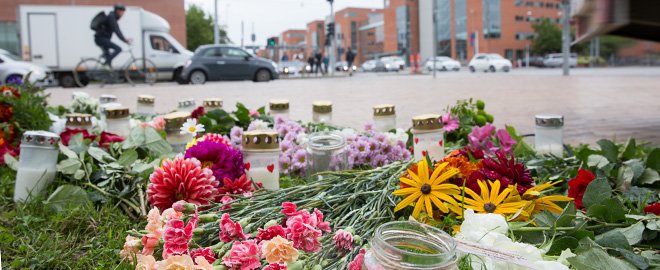 Photo: Lars Kruse.
Photo: Lars Kruse.
27-year-old student killed
In late August, a 27-year-old female student was killed in a traffic accident at the junction of Nordre Ringgade and Nørrebrogade close to the Nobel Park in Aarhus. The student was hit by a lorry as it turned right at the junction. The next morning representatives from Aarhus Municipality and from East Jutland Police met to inspect the scene of the accident. However, they did not find cause to alter the layout of the heavily congested junction.
Encouraged to improve traffic safety
Two years ago, a female student was also killed in a traffic accident that took place in the University Park. Back then, AU contacted Aarhus Municipality to improve traffic safety in the park, which provided the basis for representatives from Aarhus Municipality presentation in September of the municipality's proposals for how traffic conditions in the University Park can be improved. The solution was to convert the roads in the park into cycling roads.
The rector turned sixty
1 September marked forty years since Brian Bech Nielsen started as a student at what was then the Institute of Physics at AU. Two days after that date he turned sixty and had to concede that he will leave his position as rector of Aarhus University within the next decade. You can read about his thoughts on this in a kind of birthday interview in which he also talks about some of the things found in his office.
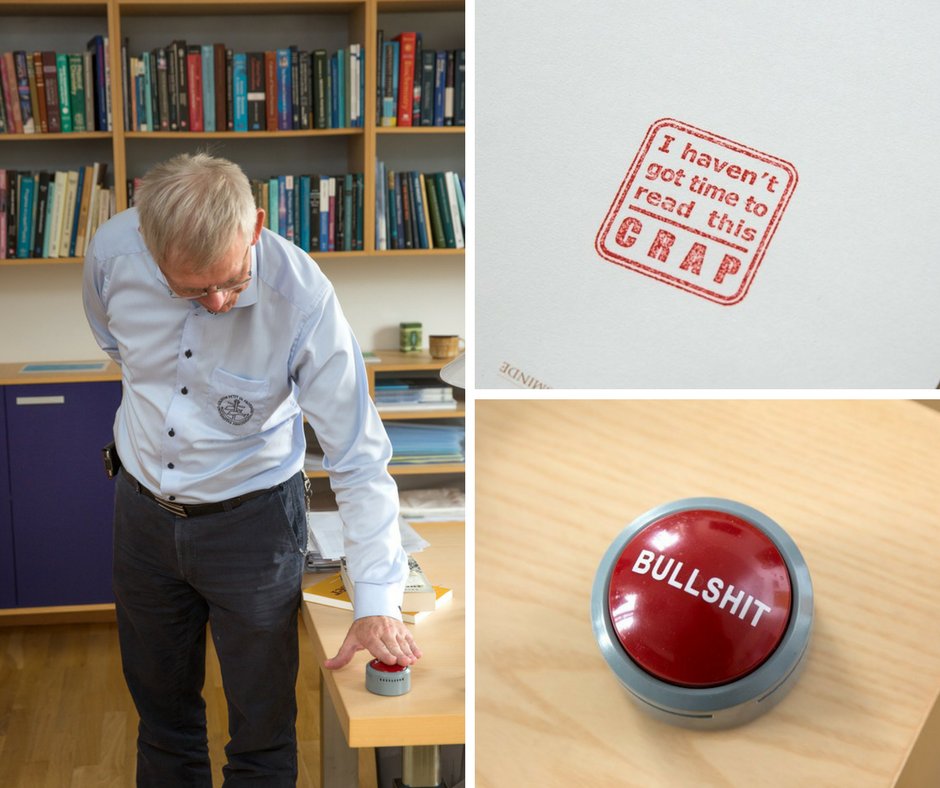
Photo: Lars Kruse
While a reputable institution turned 89
A reputable institution also reached an age where it might be expected to have seen most things. Of course we’re talking about Aarhus University, which this year held its 89th birthday. Perhaps the rector will decide to say: "Now let's celebrate!" and make sure the institution is really celebrated when it reaches its next big birthday in 2018?
Community rather than own toilet and shower
Not so much a celebration as a protest was the case when the students in the resident halls protested after the residence hall board decided to furnish the rooms with their own toilet and bath in connection with the renovation of Residence Hall 1 in the University Park in Aarhus.
 Photo:Melissa Yildirim
Photo:Melissa Yildirim
Until now, 14 residents have shared each of the sanitary installations.
For outsiders it may seem strange that you’re so critical about the prospect of getting your own shower and toilet…
As Omnibus wrote at the end of September. Chair of the residence halls association Jakob Wadsager replied:
“I can understand that. However, personally I don’t experience problems with having to wait long to take a shower or use the toilet. I'm also worried about the issue of space in the rooms. They’re only 14 m2 now, and a bathroom and toilet will take up around 4 m2.
Cutbacks
That cutbacks are a part of life is something staff recognise after a round of dismissals at the health science faculty HE and the natural science faculty ST. Six employees in the administrative centre at ST and two employees in the administrative centre at HE lost their jobs as part of the cutbacks in October.
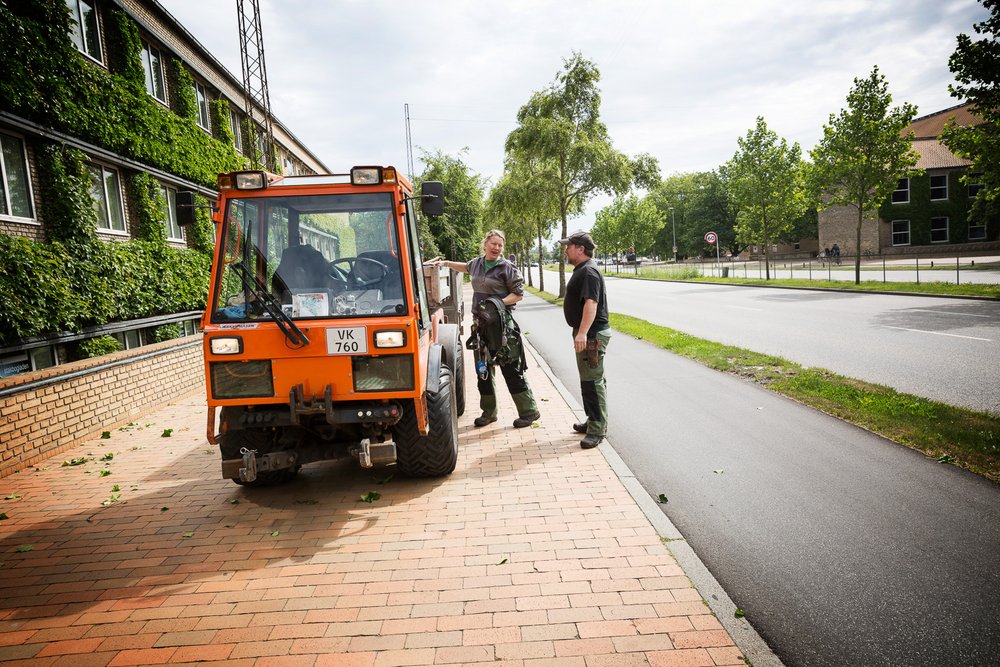 Foto: Maria Randima.
Foto: Maria Randima.
While the administrative staff at the two faculties were getting over the cutbacks, the gardeners begun cutting back the ivy growing up of the yellow brick walls. This is done using a telescopic lift with the gardeners usually beginning the work in the week before Midsummer's Eve.
"If we’re lucky, we’ll be finished in time for Christmas!", said Gardener Heidi Cornlis in an article about the gardeners and the University Park that’s helping to make AU known around the world.
Dust, oil and blood
Those known as ‘technical staff’ also keep things well-oiled in other places at the university. Omnibus wrote about the men – and one woman – who aren’t afraid to get dust, oil or blood on their hands in connection with the Danish Metalworkers’ Union at AU celebration of its fiftieth anniversary this year.
Politicians can also get their hands dirty
Even though politics is not considered manual labour, it appears to be surprisingly easy for them to get their hands dirty. It is possible to follow how dirty the political work at the Danish parliament can be in connection with this autumn’s negotiations for the Danish Finance Act 2018. The government usually announces the results of the political agreement on the state finances in November. But at the time of writing, it looks as if the topic of tax reductions and stricter regulations in the immigration area will keep large parts of the perplexed population in suspense until the third reading of the Finance Bill proposal on 22 December.
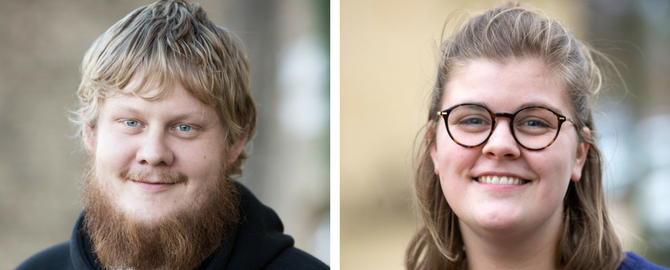
Photo: Lars Kruse
Breathing down the neck of the student council
Politics were also on the agenda at regional, municipal and university level during the autumn. This year the Student Council once again secured the two seats for student representatives on the university’s board at the university elections at AU. Sune Koch Rønnow was reelected, while Line Dam Westengaard was elected for the first time. In connection with this, the Conservative Students very nearly made history as they were only 111 votes from taking one of the mandates from the Student Council.
Pulling out all the stops
Two students and an employee from AU were elected to the Aarhus City Council in connection with the regional and municipal elections. The candidates had also pulled out all the stops in the weeks leading up to election day on 21 November.
Others at the university had received a somewhat unusual task from Copenhagen Police who enlisted the help of the crew of the research vessel Aurora. The police wanted the crew to assist in the search for the body of Swedish journalist Kim Wall which divers had been searching for in Køge Bay for a number of weeks. The crew contributed to a breakthrough in the macabre case.
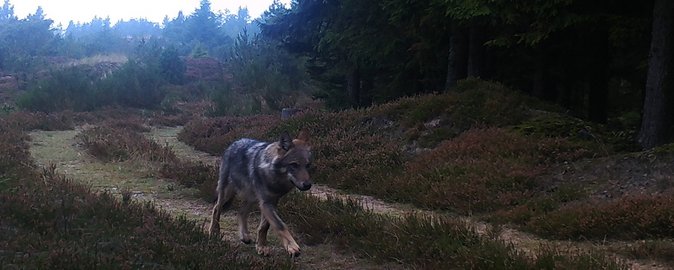 Photo:Thomas Boesdal, Søren Krabbe, Jonas Siim Jensen og Mads Skamris, Naturhistorisk Museum Aarhus, Aarhus University.
Photo:Thomas Boesdal, Søren Krabbe, Jonas Siim Jensen og Mads Skamris, Naturhistorisk Museum Aarhus, Aarhus University.
Howling with the wolves
As a Danish saying goes, you have to howl with the wolves you’re among. Many others also howled last year when it turned out that researchers from the Department of Bioscience at AU had made a number of errors in connection with the monitoring of wolves in Denmark. There was more howling at the beginning of November this yea – but this time it was howls of joy at Bioscience, when the Danish Environmental Protection Agency announced that despite the error, there was no doubt that researchers from the department were the best qualified to carry out the task of monitoring wolves in Denmark.
Serious cooperation issues between dean and department
Whether the professors at the Department of Computer Science have all howled at the moon in frustration over Dean Niels Christian Nielsen is unfortunately not a question we can answer here at Omnibus. On the other hand, it is clear that the professors eventually turned to the rector so they could express their frustration about what they saw as a lack of involvement and influence by the dean. Involvement and influence in a digitisation initiative which is, among other things, being financed with DKK 67.5 million from the senior management team's strategic funds and which has been adopted by AU's board. The initiative will double the number of students being admitted to computer science. It will also lead to an expansion of the academic staff with 18 permanent positions within the next four to five years.
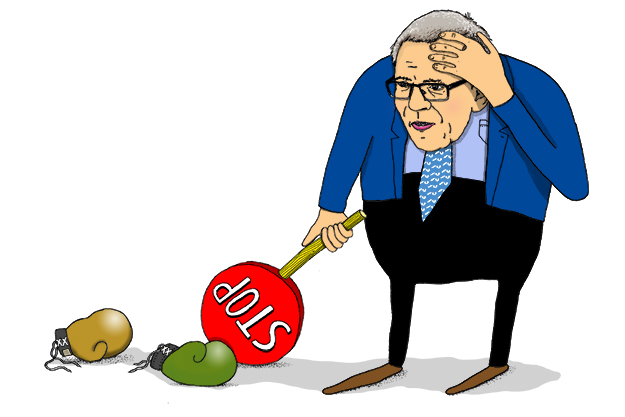
Illustration: Louise Thrane Jensen
After several discussions the rector decided to get involved in the matter. Exactly one month before Christmas Eve, Brian Bech Nielsen gathered together all the professors from the department in his office at 7:00 in the morning and presented his decision to name new temporary management of the Department of Computer Science.
AU's junior researchers organise themselves in a new association
Postdocs and assistant professors also have problems to contend with, but so far they have chosen to take a more moderate approach to creating awareness about their situation by founding the AU Junior Researcher Association (JRA).
”The association will work to improve the working conditions for junior researchers,", says newly elected chair of the JRA Alejandra Zaragoza Scherman.
One of the association’s declared goals is to discuss initiatives that can improve working conditions for junior researchers, including what is known as the ‘postdoc challenge'. In brief, this concerns the increase in the number of young researchers over the past decade while, at the same time, the number of permanent positions has gone down.
Researcher fight
How difficult can it be to find out how much more liquid manure farmers can spread on their fields without long-term pollution of our groundwater – and also the surrounding nature? Difficult. Very difficult.

Illustration: Louise Thrane Jensen
But having to explain to the general public how the result of the calculation has been found is even more difficult according to Professor Jørgen E. Olesen from the Department of Agroecology at AU. As the professor put it in a Danish newspaper at the beginning of December:
"I'm tired of it all. What I'm most tired of is the increased mistrust towards researchers and their calculations.”
And what of the lobbyists who have no compunction about discrediting researchers if that can help their respective interests when the researchers themselves begin to fight each other about whose calculations are most incorrect? We’re referring to the calculations that researchers from AU provided prior to a political agreement on agriculture which was adopted in February 2015. Also known as the government's agricultural package. About which there has been a lot of disagreement both before and after the adoption two years ago.
How do you exchange the present?
The latest example was at the end of November when researcher Bjørn Molt Petersen with financial support from the Danish Society for Nature Conservation suggested in an article in the Danish newspaper Berlingske:
"We’ve adopted one of biggest legislative packages for agricultural on the basis of incorrect premises.
Bjørn Molt Petersen graduated from AU, where he has also worked, and is not just anybody. He has thirty years of experience with calculation models and is recognised for his professionalism within the field.
Great commotion at AU. Consultation with the minister again and then once more in the Danish Parliament. Ministers, parliamentary politicians and researchers talking to the media about the agricultural package again...and again.
The general public has patiently waited almost two years, so you can’t really blame them for tiring of hearing about what they probably think of as a present no one really wants! Just as you can’t blame them for asking how they can exchange the present and tell the ministries, organisations and universities to get themselves unless they want to lose the last residue of credibility.
Merry Christmas!
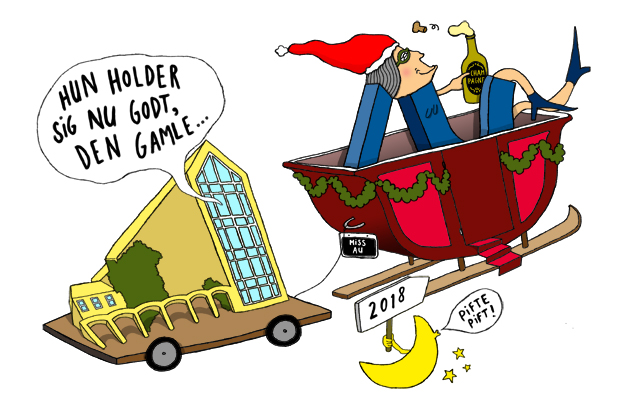 "She's in good shape, the old lady ...". Illustration: Louise Thrane Jensen
"She's in good shape, the old lady ...". Illustration: Louise Thrane Jensen
Translated by Peter Lambourne

